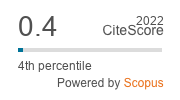Effect of coriander Coriandrum sativum L. on parasitization behaviour of Trichogramma chilonis Ishii (Trichogrammatidae: Hymenoptera) in brinjal ecosystem
DOI:
https://doi.org/10.33307/entomon.v44i2.442Abstract
For the management of the brin-jal shoot and fruit borer augmentatory biocontrol using Trichogramma chilonis Ishii egg parasitoid is a viable option. Experiments conducted in the net house (pro tray technique) and field to study the effect of coriander on the parasitization, revealed that under free choice test, maximum numbers of parasitized eggs were observed in brinjal grown with coriander at 1:1 ratio (29.48 eggs/ card). Under no-choice condition the mean number of parasitized eggs recorded was 20.88 eggs per card observed in brinjal. In the field experiment using sentinel egg card technique no statistical difference in parasitoid performance between the sole crop and intercropped plot was observed. In this studies (field experiments) clearly indicate that there is no significant effect of coriander on parasitisation of T. chilonis, though the results were promising in the green house. The probable reason for this may be due to influence of climate factors like wind direction, temperature and RH.


